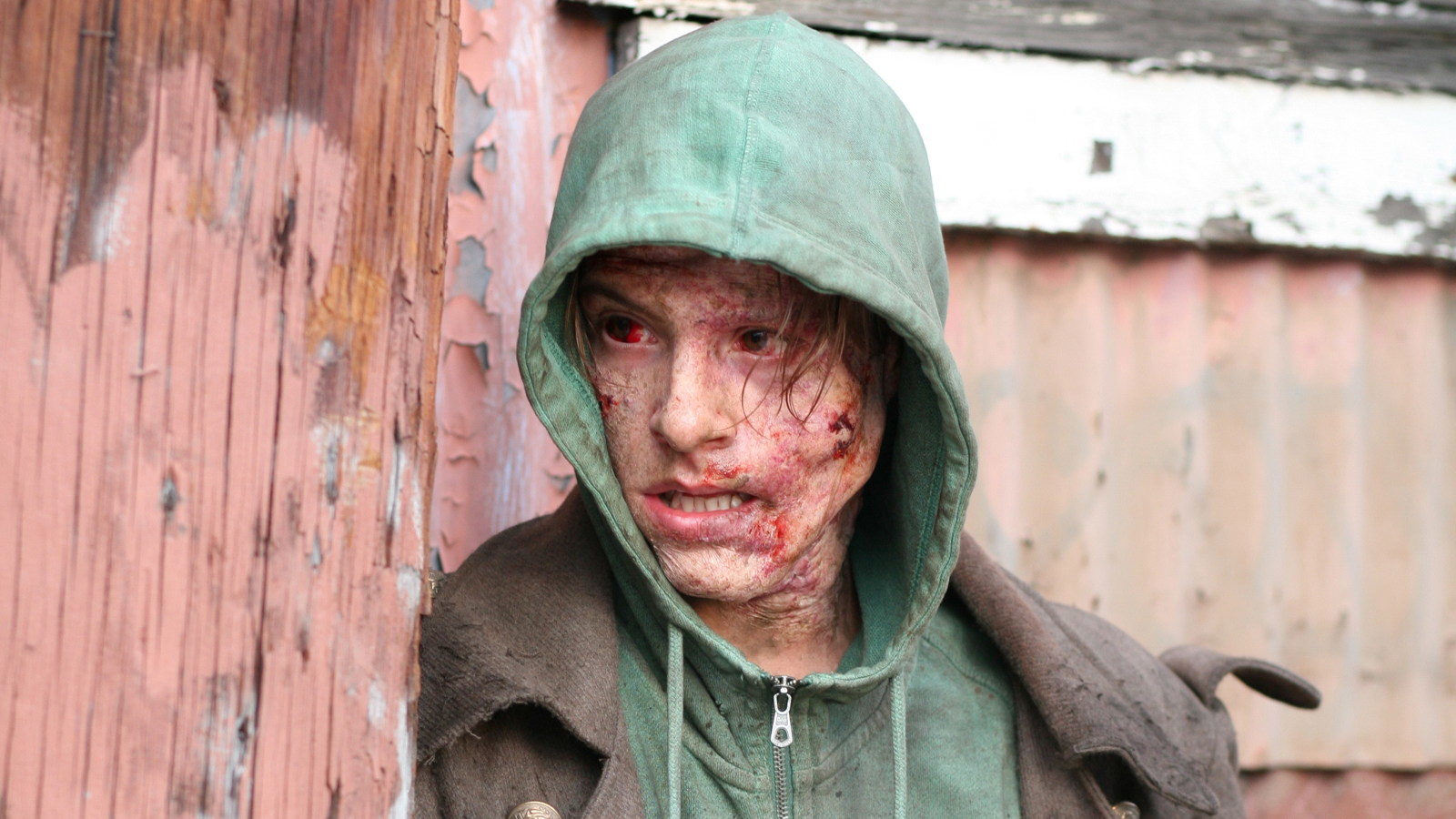Frankenstein, the latest in writer-director Bernard Rose's one-man quest to update the classics, approaches Mary Shelley's creation fable as the basis for a warped, tragic coming-of-age story. Its Monster, referred to as Adam, is a young man (Xavier Samuel) who escapes from the bowels of the L.A. laboratory he's been artificially created in with the idea of reuniting with the research scientists (nurturing Carrie-Anne Moss, arrogant Danny Huston) whom he identified as his "parents". Adam's odyssey requires him to figure out how to walk, run, swim, feed himself and kill as he goes, but also how to navigate the myriad cruelties and injustices he witnesses at every turn of the mean Hollywood streets; Frankenhistory sometimes repeats itself - we worry when Adam encounters a small blonde girl so close to the water's edge - but Rose introduces new, Oedipal notes, such as his creation's evident desire to return to the bosom of his so-called mother. The outstretched arms that have been part of the traditional Frankenpose are here interpreted as those of a boy reaching out for a hug he can never receive, rendering this monster doubly poignant.
This quest for affection along the boulevards of Tinseltown also confers upon this version the standing of a self-reflexive showbusiness story. One is struck by the realisation that Rose's recent modernisation projects - a rich run, from 2000's ivansxtc. to 2012's Boxing Day, all showcasing the mischievous Huston in some shape or form - are a reaction to what the director himself learnt the previous decade, following the success of 1992's Candyman and the failure of 1994's Immortal Beloved and 1997's Anna Karenina, doomed attempts to push his cherished high culture into the same popcorn-littered multiplexes in which his previous film had been so enthusiastically gobbled up. The primary lesson Rose took away from those stinging faceslaps is the obvious yet oft-forgotten one that working with lower budgets and smaller crews affords any filmmaker greater artistic and creative control: here, he pares back the crackling spectacle of, say, the Branagh Frankenstein to better get to the philosophy - the big questions - underpinning Shelley's writing.
Speaking of death, with all the best liberal will in the world, I wonder whether a certain sentimentality has crept into our conception of Shelley's Monster over the years. Rose proceeds from the standpoint that as Adam does everything as a child, so we will forgive him his brattier, more uncomprehending outbursts; yet he racks up so much carnage in the course of this take - as Kim Newman points out, this is the goriest Frankenfilm since Udo Kier's days - that melting him down like a Terminator might not be the worst idea. Still, that's testament to the way Rose succeeds in getting us to think again - and think deeper - about this much-filmed text, and its wider implications: you'd perhaps believe there was nothing new left under this sun, but taking the source material outdoors and kicking it around for a few blocks does yield fresh ideas, scenes, configurations, and an adaptation very nearly as inventive and provocative as Michael Almereyda's New York-set Hamlet. And where did the marketing money go in 2015, year of its production? Towards plastering I, Frankenstein and Victor Frankenstein on the sides of buses. Cruel world indeed.
Frankenstein is now available on DVD through Signature Entertainment, and to stream via Amazon Prime.

No comments:
Post a Comment